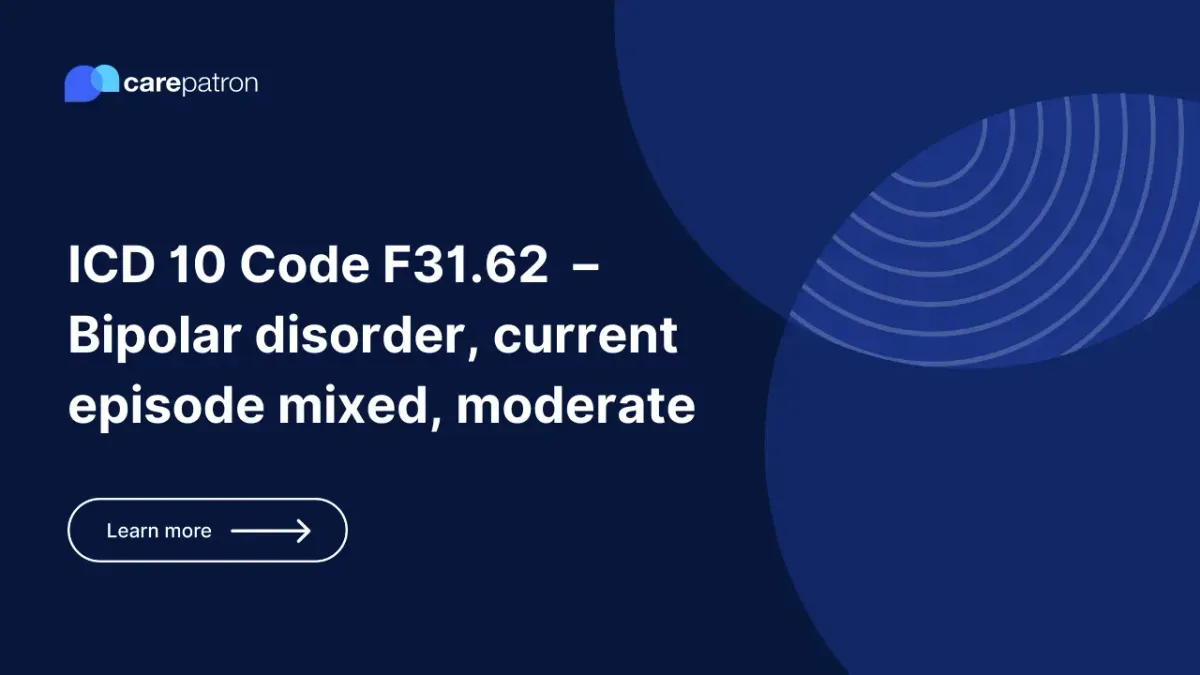
F31.62 – Bipolar disorder, current episode mixed, moderate
Learn about ICD-10-CM code F31.62 for bipolar disorder with a moderate mixed episode, including symptoms, diagnostic criteria, treatment options, and billing information.
Use Code
Commonly asked questions
Yes, this ICD-10 code is billable.
You use it when your patient is confirmed to have bipolar disorder, they’re currently having a mixed episode (meaning they are both depressed and manic), and the severity of this episode is moderate.
Treatment for this disorder will depend on the severity, but normally, treatment includes medication (mood stabilizers and antipsychotics) and psychotherapy. Severe cases may involve hospitalization.
EHR and practice management software
Get started for free
*No credit card required
Free
$0/usd
Unlimited clients
Telehealth
1GB of storage
Client portal text
Automated billing and online payments
